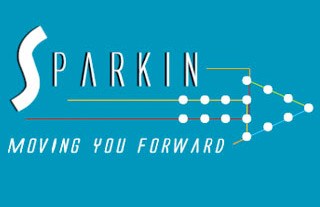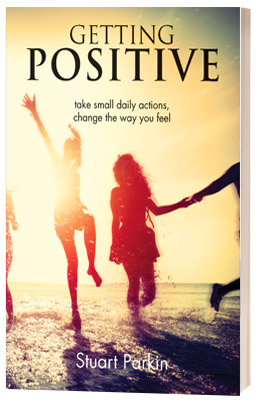Working Practice Post COVID
Working from home or not? There are clear advantages to both and these advantages vary by person and employer.
For over a decade I’ve been asked by strategists for opportunities where virtual working or perhaps a flexi week with one or two days working from home. There has been some accommodation by agencies but typically, staff have been expected to be on-site. The main justification, cultural cohesion and a justification that creative and business effectiveness it is believed derives best from in-person collaboration.
Needs Must
The single most compelling factor that changes the post COVID work dynamic, is knowledge gained by the team leader of their team working virtually. The planning lead now knows (or should) who can perform effectively working from home and who can’t.
Is This A Game Changer?
If you lead a team, your primary worry, is the effective performance of that team. Prior to COVID the team leader focused on results, would err on the side of caution but now the same leader can use virtual working to reward those of the team that can clearly function from home.
Does This Mean Most Of Us Will Be Working Virtually?
No. While I’ve heard there are clear ‘working from home’ benefits, (for example, a few team leaders have said that video calls have made group meetings much more inclusive than past physical formats) there are several reasons why most of us will still be working on-site.
i) Those that can’t work well from home – Some don’t perform well working in isolation; Some have domestic circumstances that make working from home difficult.
ii) Those that don’t want to work from home – ‘69% percent of workers missed face to face work collaboration.’ (Digiday, 6/2020). 20 to 30 year old’s that have moved to the big city, don’t want to spend their lives locked in their studios; Others want to escape the space of their apartments to be sane/thrive on social interaction.
iii) Those that shouldn’t work from home – In the absence of formal training which has disappeared from much of agency life, the concept of learning ‘on the job’ requires physical proximity to most effectively learn.
iv) Control – Many team leaders will continue to justify for reasons including cultural cohesion and creative optimization, that their team should be physically present more than not.
How Does The Future Look?
Most businesses will develop more agile operating models. Smart places of work will reward more of their employees with greater flexibility to work from home, a day or two a week. Where companies require everyone in office or everyone out of office, such decisions are not typically about what’s best for people instead they’re about what’s best for profits. Smart places will seek to optimize the benefits of technology and to enhance working culture by a balanced approach to flexi working. Perhaps flexi working will increase by 20% in year post COVID.
What Can You Do To Prepare For Cost Covid?
1. Reflect and Assess – This is a great time to assess what you miss and what you don’t, what you can tolerate and can’t and where and how you truly want to spend your time.
2. Prove Yourself – If you want the option (as an employee) post COVID to work virtually, prove you can be effective from home. If you haven’t functioned well to date, actively work on ways to understand your relative lack of productivity and pivot.
For more background/links on virtual working – https://bit.ly/2CVbGRT
For more articles on stress management, job security etc – https://bit.ly/2NKLQC0
Working from Home or Not? Virtual Work Practice Post Covid
For over a decade I’ve been asked by candidates for the chance to work virtually, perhaps a day or two a week. The main justifcation from agencies for not on-the-whole allowing flexibility is for reasons of cultural cohesion and a belief that business effectiveness is derived best from in-person collaboration.
Why Virtual Working Will Be More Significant post-COVID
The single most compelling reason, the knoweledge gained by team leaders of their team working virtually. The planning head now knows who can and who can’t perform virtually.
Does This Mean Most Will Be Working Virtually Post-COVID?
No. There are several reasons why most will continue working on-site.
i) Those that can’t work well from home – Some perform poorly working in isolation; Some have domestic situations which make working from home difficult.
ii) Those that don’t want to work from home – 20 – 30 year olds (and others!) that have moved to a big city, don’t want to spend their lives locked in their studios. Work serves a ‘much’ bigger purpose than simply making money. Many want to escape their apartments for sanity that social interaction brings.
iii) Those that shouldn’t work from home – In the absence of formal industry training which has virtually disappeared from agency life, to most effectively develop expertise, the concept of ‘learning on the job’ requires physical proximity.
iv) Control – Many team leaders will continue to require physical attendance justified on the basis of cultural cohesion and creative optimization.
How Will The Future Look?
No one really knows but it’s likely that most businesses will continue to develop more agile operating models. Smart places of work will reward more employees with greater flexibility to work from home. Well led places will seek to optimize the benefits of technology and to enhance work culture by adopting a balanced approach to flexi’ working. Perhaps flexi’ will increase by 20% in the next few years post COVID.
Talk soon,
Stuart
Articles and commentary that might be of interest…
How did I do during covid?
A crisis sheds light on those that function well under extreme pressure. Conversations about lockdown have revealed those of you that feel your boss simply cannot communicate/reassure/cope, with virtual working. But cut some slack to those bosses, who knows what their domestic circumstances are. That said, we are all constantly being assessed, the bosses but team members as well! For sure, team leaders will now have a pretty good idea who thrives virtually and who is diving. This will be a valuable understanding to have in deciding the physical/virtual mix post covid. And perhaps moving forward, whilst intelligence ‘IQ’ and emotional intelligence ‘EQ’ will continue to be important, your ‘AQ’ or adaptability quotient, will play a much larger part in the hiring process. bit.ly/2QQGzLp hashtag#Effective hashtag#Communication hashtag#Assessment hashtag#Adaptability
Should we all work virtually all of the time?!
There’s much talk about the future impact on working practices, a big theme of my daily conversations with you. The longer we have to live with covid 19, the more entrenched coping behaviours become, the more likely we are to see real permanent changes. Will we all be working from home instead of going in to offices? Managers have discovered that virtual working can work. Specifically, they will now know who can work effectively from home and who can’t. Recently some companies have decided beyond covid, they are going completely virtual. This seems as strange to me as compelling everyone to be in the office! For many years I’ve been asked by those of you looking for a new job, whether an employer might allow four day weeks in office and one day out. My response has been, earn the right, prove your ability and perhaps you can make it happen. ie) Employers want people in the office. Moving forward, the smart agencies will allow more virtual working/have a flexible approach to their employees. What they will not do, is lurch from the controlling inflexibility of expecting 100% attendance to demanding everyone stay at home. If they do, this seems more a policy about financial management and less about employee welfare or effectiveness. hashtag#optimalwork hashtag#motivatedemployees hashtag#flexiworking
Counteracting the effects of Covid 19
Who isn’t stressed with the effects of COVAD19 first from the perspective of the health of their loved ones closely followed by economic uncertainty and fear for their jobs. What should we do to help our families/friends and colleagues/clients?
What We Can Do? Professionally
Forwards – There’s only one way we can go. It’s good to remind people of this fact, while struggling to cope with real life pressures isn’t easy, the sooner we focus on the future the faster we move individually and collectively forward.
One For All – We will get through this through collective support and effort. Communicating this is comforting to those that are feeling the stress, who are feeling the pressures of the world are upon them.
Communicate Empathetically – Uncertainty is the enemy of business. Before anything else, others need to know that you understand their situation. Don’t assume you know what it is. Hear people out. Often they simply want to express themselves. Hear them and you are better equipped to communicate effectively.
Positive Mindset – Much easier said than done but to get the best from those around us, we can play are part in giving ‘belief’ that things will work out. By projecting a narrative away from ‘uncertainty’ to one of possibility and potential, we influence the defensive mentality of clients.
Create Opportunity – In every situation your reaction drives you toward a potential positive or negative outcome. Externally there’s much you can’t control but by talking opportunity or potential even with clients in a defensive mindset, you increase the chances if not of an expansive client mindset then of one that is relatively less negative, one prepared therefore prepared to cut budgets less?
What We Can Do Personally? (How best to escape constant pressure and to buoy our mental health)
Find Peace away from the Bad News or/ switch off.’ For many this is not hard but for a decent number this is very hard. Two ‘safe’ areas I’d suggest.
Gratitude – After extensive travel in Africa and India, I’m aware that we have huge amounts to be grateful for. You might not want to hear this and are simply concerned for your family’s well-being to which I say, focus on how fortunate you are to have a family you love so much, many don’t. Focus on the things that are amazing in your life, such as being healthy, having food to eat or that you have an inquisitive, ‘problem solving’ mind! We all tend to take most things for granted; The state of being grateful, prevents you focusing on what you don’t have. Being grateful is ‘mentally,’ a very safe place to be.
Giving – Helping others – (Not talking about it, doing it.) So your hands are full, I understand but when you are completely focused on helping others, your own children or strangers, when you are completely ‘in the moment’ of helping, you are in a ‘safe’ area, as far from worrying about what ‘might not be’ you are creating ‘what is’ for someone else.
Connect with Others – Talk with others, show them you care, that they are not alone and in so doing, you help and are helped.
For links on some of the themes from above – Bit.ly/2xiLLRG
Counter Attacking COVID-19
Who isn’t stressed with the effects of COVID-19 from both the perspective of health and job security. I’m no ‘crisis’ expert but when times are tough, I tend to default to the following.
Professionally – Key actions with clients
One-For-All – Communicating that together we will get through this challenge. This ‘needs’ to be communicated through words and better still, words and ‘actions.’
Empathetic Communication – Uncertainty is the enemy of business that said, in the midst of this crisis, I don’t assume I know what someone else’s situation is. I try to listen carefully and communicate an understanding of what I’ve heard and then work form there.
Positive Mindset – My aim is to project a narrative away from uncertainty and toward one of potential and in so doing, perhaps mitigate the defensive mindset clients might have.
Create Opportunity – There’s much I can’t control but, I can control how I show up! Talking ideas/opportunity is the way to help a client orient away from challenges/threats.
Personally – Mitigating pressure/buoy mental health)
Two areas I take refuge from stress:
Gratitude – When I’m focused on what I have versus what I don’t, I’m not in a negative frame of mind.
Giving – When I’m helping others, (or trying to!) again I’m not thinking about my situation, I’m focused on others. At the same time when much seems beyond my control, giving is something that not only helps others but it empowers me; I’m in control and making a difference.
I’m here for any of you. Very best wishes, S
Articles and commentary that might be of interest…







